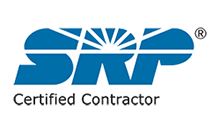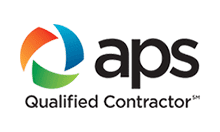When it comes to home emergencies, plumbing issues are among the most frustrating and potentially damaging problems that homeowners can face. From burst pipes to overflowing toilets, plumbing emergencies can cause significant damage to your home and require immediate attention. In this blog, we’ll discuss the importance of emergency plumbing repairs and what you can do to address plumbing emergencies.
Plumbing emergencies can cause significant damage to your home if they are not addressed quickly. Water damage from burst pipes or overflowing toilets can cause mold growth, structural damage, and other costly problems. Additionally, plumbing emergencies can disrupt your daily routine and make it difficult to use your home’s plumbing systems.
In some cases, plumbing emergencies can pose health risks to you and your family. For example, sewage backups can cause bacterial contamination and pose a serious health hazard. In these situations, it is important to address the problem quickly to prevent further damage and protect the health and safety of your family.
Common Plumbing Emergencies
Here are some of the most common plumbing emergencies that homeowners may face:
- Burst pipes: Burst pipes can occur due to freezing temperatures, water pressure, or age. When a pipe bursts, it can cause significant water damage and require immediate attention.
- Clogged or overflowing toilets: Toilet clogs or overflows can occur due to flushing inappropriate items, such as paper towels or feminine hygiene products. In some cases, a clog or overflow can indicate a larger problem with your plumbing system. Most of the time, a thorough drain cleaning will remove the clog.
- Leaking water heater: A leaking water heater can cause significant water damage and pose a safety hazard. It is important to address a leaking water heater as soon as possible.
- Sewage backups: Sewage backups can occur due to a blockage in your sewer line or a problem with your septic system. These backups can pose serious health hazards and require immediate attention.
- Gas leaks: Gas leaks can pose a serious health and safety hazard. If you smell gas in your home, leave immediately and contact your gas company. Do not use any electrical switches or light any matches until you are safely outside.
- Water line breaks: Water line breaks can occur due to freezing temperatures, age, or damage from tree roots. A water line break can cause significant water damage and require immediate attention.
- Leaking faucets or fixtures: A leaking faucet or fixture may seem like a minor problem, but it can waste a significant amount of water over time. Additionally, a leaking fixture can indicate a larger problem with your plumbing system.
- No hot water: If you have no hot water, it may indicate a problem with your water heater or another part of your plumbing system.
- Backflow prevention: Backflow prevention devices are designed to prevent contaminated water from flowing back into your home’s water supply. If you have a problem with your backflow prevention device, it can pose a serious health hazard.
- Sump pump failure: Sump pumps are designed to prevent water from entering your basement or crawl space. If your sump pump fails, it can cause significant water damage to your home.
- Water pressure problems: Low water pressure can indicate a problem with your plumbing system, while high water pressure can cause damage to your pipes and fixtures.
What to Do in a Plumbing Emergency
If you are experiencing a plumbing emergency, here are some steps you can take to address the problem:
- Shut off the water: If you have a burst pipe or other major plumbing problem, turn off the water supply to your home to prevent further damage.
- Call a plumber: Contact a licensed plumber who offers emergency plumbing services. They will be able to assess the problem and provide a solution.
- Clean up any standing water: If you have standing water in your home, use a wet/dry vacuum or mop to remove it as quickly as possible.
- Open windows and doors: Opening windows and doors can help to increase ventilation and reduce the risk of mold growth.
- Do not attempt to fix the problem yourself: Plumbing emergencies require specialized knowledge and equipment. Attempting to fix the problem yourself can make the problem worse and put you at risk of injury.
Preventing Plumbing Emergencies
While not all plumbing emergencies can be prevented, there are some steps you can take to reduce the risk of a plumbing emergency:
- Insulate pipes: Insulating pipes can help to prevent them from freezing and bursting during cold weather.
- Dispose of waste properly: Avoid flushing inappropriate items down your toilet or pouring grease down your drains.
- Maintain your plumbing systems: Regular maintenance, such as cleaning your drains and inspecting your plumbing systems, can help to prevent problems before they become emergencies. Contact a professional for routine plumbing services.
- Keep an eye on your water bill: A sudden increase in your water bill may indicate a leak in your plumbing system.
In conclusion, plumbing emergencies can cause significant damage to your home and require immediate attention. If you are experiencing a plumbing emergency, it is important to contact a licensed plumber who offers emergency services. Additionally, taking steps to prevent plumbing emergencies can help to protect your home and save you money in the long run.











